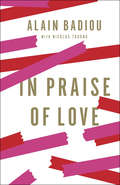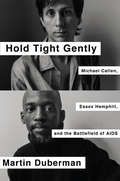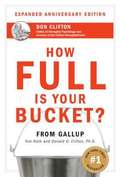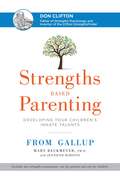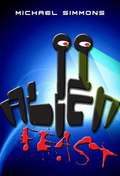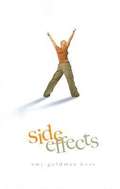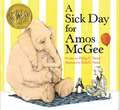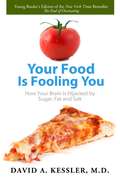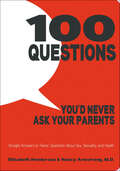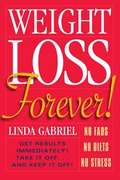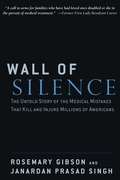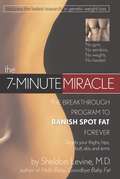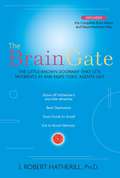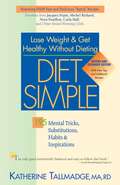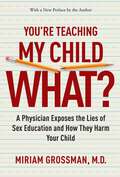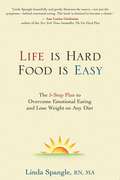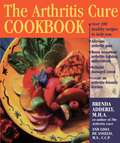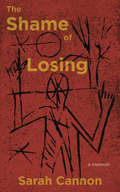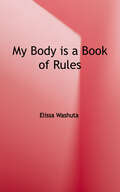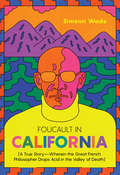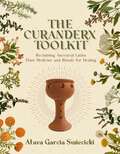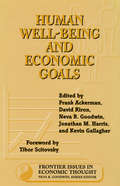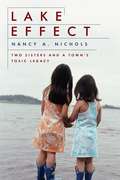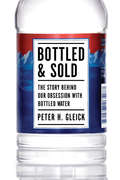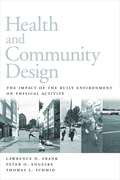- Table View
- List View
In Praise of Love
by Alain Badiou Nicolas TruongThe renowned French philosopher&’s &“ode to love&’s power to unite in the face of eternity, and its optimism in the face of pain&” (Publishers Weekly). In a world rife with consumerism, where online dating promises risk-free romance and love is all too often seen as a mere variant of desire and hedonism, Alain Badiou believes that love is under threat. Taking to heart Rimbaud&’s famous line &“love needs reinventing,&” In Praise of Love is the celebrated French intellectual&’s passionate treatise in defense of love. For Badiou, love is an existential project, a constantly unfolding quest for truth. This quest begins with the chance encounter, an event that forever changes two individuals, challenging them &“to see the world from the point of view of two rather than one.&” This, Badiou believes, is love&’s most essential transforming power. Through thought-provoking dialogue edited from a conversation between Badiou and Truong, a vibrant cast of thinkers are invoked: Kierkegaard, Plato, de Beauvoir, Proust, and more, create a new narrative of love in the face of twenty-first-century modernity. Moving, zealous, and wise, Badiou&’s &“paean to the anticapitalist, antiessentialist, unifying power of love&” urges us not to fear it but to see it as a magnificent undertaking that compels us to explore others and to move away from an obsession with ourselves (Publishers Weekly). &“Finally, the cure for the pornographic, utilitarian exchange of favors to which love has been reduced in America. Alain Badiou is our philosopher of love.&” —Simon Critchley, author of The Faith of the Faithless
Hold Tight Gently: Michael Callen, Essex Hemphill, and the Battlefield of AIDS
by Martin DubermanIn December 1995, the FDA approved the release of protease inhibitors, the first effective treatment for AIDS. For countless people, the drug offered a reprieve from what had been a death sentence; for others, it was too late. In the United States alone, over 318,000 people had already died from AIDS-related complications-among them the singer Michael Callen and the poet Essex Hemphill.Meticulously researched and evocatively told, Hold Tight Gently is the celebrated historian Martin Duberman's poignant memorial to those lost to AIDS and to two of the great unsung heroes of the early years of the epidemic.Callen, a white gay Midwesterner who had moved to New York, became a leading figure in the movement to increase awareness of AIDS in the face of willful and homophobic denial under the Reagan administration; Hemphill, an African American gay man, contributed to the black gay and lesbian scene in Washington, D.C., with poetry of searing intensity and introspection.A profound exploration of the intersection of race, sexuality, class, identity, and the politics of AIDS activism beyond ACT UP, Hold Tight Gently captures both a generation struggling to cope with the deadly disease and the extraordinary refusal of two men to give in to despair.
How Full Is Your Bucket?
by Tom Rath Donald O. CliftonOrganized around a simple metaphor of a dipper and a bucket -- already familiar to thousands of people -- How Full is Your Bucket? shows how even the smallest interactions we have with others every day profoundly affect our relationships, productivity, health, and longevity. Co-author Donald O. Clifton studied the effects of positive and negative emotions for half a century, and he and his colleagues interviewed millions of people around the world. Their discoveries contributed to the emergence of an entirely new field: Positive Psychology. These same discoveries are at the heart of How Full is Your Bucket? Clifton, who also coauthored the bestseller Now, Discover Your Strengths, penned How Full is Your Bucket? with grandson Tom Rath. Written in an engaging, conversational style, their book includes colorful stories, 5 strategies for increasing positive emotions, and features an online test that measures readers' Positive Impact. How Full is Your Bucket? is a quick, breezy read. It will immediately help readers boost the amount of positive emotions in their lives, and in the lives of everyone around them. The book is sure to inspire lasting changes in all who read it, and has all the makings of a timeless classic.
Strengths Based Parenting: Developing Your Children's Innate Talents
by Jennifer Robison Ph.D. Mary ReckmeyerWritten for parents to help their kids make the most of their talents -- and to help parents make the most of their own talents so they can be truly effective mothers and fathers. Includes access codes for two strengths assessments: one for parents and one for children.How can you discover your children's unique talents? And how can you use your own talents and strengths to be the most effective and supportive parent possible? Strengths Based Parenting addresses these and other questions on parents' minds. But unlike many parenting books, Strengths Based Parenting focuses on identifying and understanding what your children are naturally good at and where they thrive -- not on their weaknesses. The book also helps you uncover your own innate talents and effectively apply them to your individual parenting style. You'll find stories, examples and practical advice as well as a strengths assessment access code for parents and one for kids, so you can take the first step to discovering your innate talents and those of your children. Grounded in decades of Gallup research on strengths psychology -- as highlighted in Gallup's StrengthsFinder 2.0, which has sold nearly 5 million copies to date -- Strengths Based Parenting shows you how to uncover your kids' top talents and your own. The strengths journey is one that the whole family embarks on together, and Strengths Based Parenting will guide you and your children to more fulfilling, productive and happy lives.
Alien Feast (Chronicles of the First Invasion, Book #1)
by Michael SimmonsThe war of the worlds meets Douglas Adams as two kids and one old man prepare to save the world. Things are getting better with the alien invasion. Sure it's still not too uncommon to come home and find your step-parents reduced to a pile of unsavory feet -- but at least now with the disease killing the aliens off, you have a relatively decent chance of making it through a day without getting mostly eaten. William knows this first-hand, having lost both his step-parents, but when the aliens kidnap his long-time crush, Sophie's scientist parents (and the government won't help) it's up to William, Sophie, and William's bizarre Uncle Maynard to save them -- and perhaps the rest of the world while they are at it. A hysterically twisted adventure that will knock your feet off!
Side Effects
by Amy Goldman KossThis is the story of the diagnosis, hospitalization and treatment of a 15-year-old girl who learns she has lymphoma. The treatment is described in excruciating detail. Izzy has a sense of humor, which lightens the story somewhat, and fortunately she is one of the 88 per cent who survives. There is mild swearing and "bad" language common among today's teenagers, understandable especially in one going through what Izzy goes through. Her life and interests outside the hospitalization are also told.
A Sick Day for Amos McGee
by Philip C. Stead Erin E. SteadTHE BEST SICK DAY EVER and the animals in the zoo feature in this striking picture book debut. Friends come in all sorts of shapes and sizes. In Amos McGee's case, all sorts of species, too! Every day he spends a little bit of time with each of his friends at the zoo, running races with the tortoise, keeping the shy penguin company, and even reading bedtime stories to the owl. But when Amos is too sick to make it to the zoo, his animal friends decide it's time they returned the favor A Sick Day for Amos McGee is a 2011 Bank Street - Best Children's Book of the Year and the winner of the 2011 Caldecott Medal. Images and image descriptions available.
Your Food is Fooling You: How Your Brain Is Hijacked by Sugar, Fat, and Salt
by David A. KesslerFormer commissioner of the US Food and Drug Administration David Kessler, M.D., argues forcefully that our brain chemistry is being hijacked by the food we eat: that by consuming stimulating combinations of sugar, fat, and salt, we're conditioning our bodies to crave more sugar, fat, and salt―and consigning ourselves to a vicious cycle of overeating.
100 Questions You'd Never Ask Your Parents: Straight Answers to Teens' Questions About Sex, Sexuality, and Health
by Elisabeth Henderson Nancy ArmstrongTeens have questions about sex. This simple manual answers their questions--honestly, simply, and reliably.What does an orgasm feel like?Does masturbating have any long-term negative effects?Does alcohol kill brain cells?Teens have questions about sex; it's a matter of who they ask and how reliable the answers are. Collected directly from teens and presented in a simple and accessible Q&A format, Elisabeth Henderson and Dr. Nancy Armstrong's 100 QUESTIONS YOU'D NEVER ASK YOUR PARENTS provides information about sex, drug, body, and mood in a way that's honest, nonjudgmental, and responsible.
Weight Loss Forever!: NO FADS. NO DIETS. NO STRESS. GET RESULTS IMMEDIATELY!
by Linda GabrielHow is this program different?What if I told you that it's as important to manage the thoughts you feel yourself as it is to manage the food you eat? What if your physical condition is simply a reflection of your inner world? Perhaps in the past you have managed to lose weight through diet and exercise alone. However if you didn't address the underlying subconscious thoughts that created the problem in the first place, the weight probably returned.As a hypnotherapist I have come to deeply respect the power of the subconscious mind. I believe the root cause of becoming overweight is usually mental, emotional and spiritual, rather than physical. When you change your mind, the body follows automatically. Then you lose weight easily, steadily, seemingly without effort.-Linda Gabriel
Wall of Silence: The Untold Story of the Medical Mistakes That Kill and Injure Millions of Americans
by Rosemary Gibson Janardan Prasad SinghMedical mistakes occur with alarming frequency in this country. Nightly newscasts and daily newspapers tell of botched surgeries, mistaken patient identities, careless overdoses, and neglected diagnoses. You may have dismissed these stories as unfortunate mistakes, misunderstandings, or just isolated incidents with the occasional bad doctor. <P><P>Wall of Silence reveals that these medical mistakes are not rare incidents with the occasional bad doctor. In fact, the real-life stories in this book show that medical mistakes are increasing in frequency-and worse, that the system is designed more to cover up these errors than prevent them.
The 7-Minute Miracle: The Breakthrough Program To Banish Spot Fat Forever
by Sheldon LevineWEIGHT LOSS FOR THE 21ST CENTURY No weights! No diets! No aerobics! No gym memberships! The 7-Minute Miracle is the genetically based program that lets you actually spot reduce fat in your most troublesome areas: your thighs, hips, buttocks, abs, and arms. Using the latest scientific discoveries about genetics and weight loss, this breakthrough plan focuses your body's natural weight-loss abilities like a laser-right on the spot that troubles you the most. In just 7 minutes a day you can melt away fat to expose and define your muscles underneath. The 7-Minute Miracle program has helped hundreds of patients lose inches, lose weight, and feel great doing it-in just 7 minutes a day! Now you can too!
The Brain Gate: The Little-Known Doorway That Lets Nutrients in and Keeps Toxic Agents Out
by J. Robert HatherillIn this groundbreaking book, Dr Hatherill, a leading toxicologist, brings to light the latest discoveries of how the brain works, and explains exactly what we can do to preserve the brain's vital functions. This new science looks closely at the blood-brain barrier--literally the gateway to the brain, which determines what enters our brain and what doesn't. <P><P>Dr Hatherill's research into toxic substances and nutritional elements shows that what gets into our brain affects emotions, intelligence, disease, and overall well-being far more than scientists ever believed possible. Stress, cancer-fighting drugs, common medications, even the elements in processed foods, all allow harmful toxins to cross over and enter our brain and cause disease. <P><P> The book includes a comprehensive 'Six-Step Brain Purification Program', the only brain detox and nutrition plan that jump-starts optimum brain health. You will find the Top 10 substances that threaten the health of your brain, and learn what foods you can use to fight off such debilitating diseases as Alzheimer's and Parkinson's disease.
Diet Simple: 195 Mental Tricks, Substitutions, Habits & Inspirations
by Katherine TallmadgeMatching Tips to PoundsThe secret to losing weight and keeping it off for good is simple. It's the small, easy changes you make in eating that have the most dramatic and lasting results. <P><P>Diet Simple is the only program that shows you exactly which changes to make and how much weight you can expect to lose. Learn how to replace fat-laden habits you'll never miss, make substitutions you'll relish, and retool your mind to view eating in a whole new way. All in a style that's fresh, entertaining, and fun. Here's just a taste of what you'll discover inside:How singing in the shower can help you lose 26 pounds.How visiting "Old MacDonald" can help your kids lose 10 pounds.How your alarm clock can help you lose 14 pounds.How "Batch" Recipes can help you lose 40 pounds.Plus lots more tips for the whole family!
You're Teaching My Child What?: A Physician Exposes the Lies of Sex Education and How They Harm Your Child
by Miriam GrossmanIf you think sex education is still about the birds and the bees, think again. And it's not about science either. In her shocking exposé, You're Teaching My Child What?, Dr. Miriam Grossman rips back the curtain on sex education today, exposing a sordid truth. Today's sex ed programs aren't based on science; they're based on liberal lies and politically correct propaganda that promote the illusion that children (yes, children) can be sexually free without risk. As a psychiatrist and expert on sexual education, Dr. Grossman cites example after example of schools and organizations whitewashing—or omitting altogether— crucial information that doesn't fit in with their "PC" agenda. Instead, sex educators only tell teens the "facts of life" that promote acceptance, sexual exploration, and experimentation. What sex educators call an education, scientists would call a scam: • Sex educators won't tell girls their bodies are biologically and chemically more susceptible to STDs; they will only say 3 million girls have a sexually transmitted infection • Educators say it's natural for children to "explore" their sexuality from a young age and only they can decide when it's right to have sex—the real truth is neurobiologists say teen brains are not developed to fully reason and weigh consequences, especially in "the heat of the moment" • Teens are told condoms, vaccines and yearly testing provide adequate protection, without being told that studies now show condoms are no match for herpes, HPV and gonorrhea In You're Teaching My Child What?, Dr. Grossman reveals biological truths that you won't find in today's classrooms. You're Teaching My Child What? is critical reading for parents with teens and instrumental in teaching children the truth about sex.
Life is Hard, Food is Easy: The 5-Step Plan to Overcome Emotional Eating and Lose Weight on Any Diet
by Linda SpangleLinda Spangle, founder and director of the highly successful WINNERS for Life wellness and weight-loss clinic, offers hope to those who want to take control over their eating habits and lose weight for good. Life Is Hard, Food Is Easy will completely change the way you think about food, giving you a powerful strategy for conquering your emotional eating habits and achieving lasting weight-loss success. With Spangle's approach, you can succeed on any diet. Without it, most diets are doomed to fail. Using specific guidelines, each step in Spangle's 5-step plan involved answering a question related to the connection between food and emotions.
The Arthritis Cure Cookbook
by Brenda AdderlyUnlock the secrets of a healthy, joint-preserving diet!A Step-by-Step Nutritional Guide to Completing the CureIn The Arthritis Cure Cookbook you'll learn simple ways to incorporate into your everyday meals the seven guidelines to a healthy, join-preserving diet including how to:Ease the symptoms of osteoarthritis with delicious and easy-to-make mealsBoost important arthritis-fighting antioxidants in the bloodstreamFocus on inflammation-reducing foodsReplace important nutrients depleted by prescription arthritis drugsMaximize your energy and rediscover the joy of cookingCreate an arthritis-friendly kitchen that minimizes the strain on your jointsWith a wide range of recipes for breakfast, lunch, appetizers, side dishes, salads, vegetarian meals, main dishes and more. The Arthritis Cure Cookbook is sure to delight almost any palate!So cook and eat your way to good health with The Arthritis Cure Cookbook! It will change your life!
The Shame of Losing: A Memoir
by Sarah Cannon&“A book about the brutal realities of a traumatic brain injury; but it is also about a young mother trying to save her own life. Honest, poetic.&” ―Ann Hedreen, author of Her Beautiful Brain On the morning before Halloween in 2007, Sarah receives a phone call from her husband&’s arborist colleague. Matt, her spouse of seven years and father of their two small children, has been severely injured by a falling tree branch while working in a neighborhood east of Seattle. Visions of their future go dark as she learns to care for the man she depended on for support. Faced with choices about how to behave through this unexpected journey, she takes as many steps back as she does forward and begins a rite of passage she never imagined. The Shame of Losing &“is an unforgettable story of a &‘full-time witness&’ to trauma and its aftershocks. With refreshing candor and a brilliant sense of humor, Sarah takes us through the maze of caring for a loved one who has suffered a traumatic brain injury and reckons deeply with what her own recovery should look like&” (Leigh Stein, author of Self Care). &“A major strength of this memoir is Cannon&’s passionate release of her voice, her shame.&” —Punctuate &“Sarah Cannon&’s memoir navigates trauma&’s juggernaut in a way so compelling the reader witnesses the opening catastrophe first-hand through the lens of her experience . . . With fierce unflinching grit she faces the unrelenting learning her struggle demands and emerges with discerning hard-won clarity. Her courage is palpable and inspires.&” —Joan Fiset, author of Namesake
My Body Is a Book of Rules
by Elissa Washuta"A candid, autobiographical scrapbook from a young woman navigating manic depression....A fever dream of darkly personal memories and musings from the shadowy corners of sexual violence and mental illness." <p><p>As Elissa Washuta makes the transition from college kid to independent adult, she finds herself overwhelmed by the calamities piling up in her brain. When her mood-stabilizing medications aren't threatening her life, they're shoving her from depression to mania and back in the space of an hour. Her crisis of American Indian identity bleeds into other areas of self-doubt; mental illness, sexual trauma, ethnic identity, and independence become intertwined. Sifting through the scraps of her past in seventeen formally inventive chapters, Washuta aligns the strictures of her Catholic school education with Cosmopolitan's mandates for womanhood, views memories through the distorting lens of Law & Order: Special Victims Unit, and contrasts her bipolar highs and lows with those of Britney Spears and Kurt Cobain. <p><p>Built on the bones of fundamental identity questions as contorted by a distressed brain, My Body Is a Book of Rules pulls no punches in its self-deprecating and ferocious look at human fallibility. This debut memoir from the independent publisher Red Hen Press isn't for the faint of heart. Washuta's honest and lyrical language as well as her subject matter—her struggles with bipolar disorder and coping with the effects of rape—will gut you, but it's the rawness of this work that makes it worth reading. Washuta's form, including revised psychiatrists' notes, annotated research papers on the use of the term "hooking up," summaries of prescription medications, and a Match.com profile, is inventive and invites the reader into the author's chaotic brain. The book perfectly articulates the difficulties navigating the path toward adulthood while coping with trauma and mental illness.
Foucault in California: [A True Story—Wherein the Great French Philosopher Drops Acid in the Valley of Death]
by Simeon WadeIn The Lives of Michel Foucault, David Macey quotes the iconic French philosopher as speaking “nostalgically…of 'an unforgettable evening on LSD, in carefully prepared doses, in the desert night, with delicious music, [and] nice people'”. This came to pass in 1975, when Foucault spent Memorial Day weekend in Southern California at the invitation of Simeon Wade-ostensibly to guest-lecture at the Claremont Graduate School where Wade was an assistant professor, but in truth to explore what he called the Valley of Death. Led by Wade and Wade's partner Michael Stoneman, Foucault experimented with psychotropic drugs for the first time; by morning he was crying and proclaiming that he knew Truth. Foucault in California is Wade's firsthand account of that long weekend. Felicitous and often humorous prose vaults readers headlong into the erudite and subversive circles of the Claremont intelligentsia: parties in Wade's bungalow, intensive dialogues between Foucault and his disciples at a Taoist utopia in the Angeles Forest (whose denizens call Foucault “Country Joe”); and, of course, the fabled synesthetic acid trip in Death Valley, set to the strains of Bach and Stockhausen. Part search for higher consciousness, part bacchanal, this book chronicles a young man's burgeoning friendship with one of the twentieth century's greatest thinkers.
The Curanderx Toolkit: Reclaiming Ancestral Latinx Plant Medicine and Rituals for Healing
by Atava Garcia SwiecickiA practical guide to understanding and using Mexican healing traditions in everyday life Arranging ofrendas. Brewing pericón into a healing tea. Releasing traumas through baños and limpias. Herbalist and curandera Atava Garcia Swiecicki spent decades gathering this traditional knowledge of curanderismo, Mexican folk healing, which had been marginalized as Chicanx and Latinx Americans assimilated to US culture. She teaches how to follow the path of the curandera, as she herself learned from apprenticing with Mexican curanderas, studying herbal texts, and listening to her ancestors. In this book readers will learn the Indigenous, African, and European roots of curanderismo. Atava also shares her personal journey as a healer and those of thirteen other inspirational curanderas serving their communities. She offers readers the tools to begin their own healing—for themselves, for their relationship with the earth, and for the people. The Curanderx Toolkit includes more than 25 profiles of native and adopted plants of Baja and Alta California and teaches you to grow, know, and love them. This book will help anyone who has lost connection with their ancestors begin to incorporate the herbal wisdom and holistic wellness of curanderismo into their lives. Take the power of ancient medicine into your own hands by learning simple herbal remedies and practicing rituals for kinship with the more-than-human world.
Human Well-Being and Economic Goals (Frontier Issues in Economic Thought #3)
by Kevin Gallagher Jonathan Harris Neva R. Goodwin David Kiron Frank Ackerman Kenneth ArrowWhat are the ends of economic activity? According to neoclassical theory, efficient interaction of the profit-maximizing "ideal producer" and the utility-maximizing "ideal consumer" will eventually lead to some sort of social optimum. But is that social optimum the same as human well-being? Human Well-Being and Economic Goals addresses that issue, considering such questions as: *Does the maximization of individual welfare really lead to social welfare? *How can we deal with questions of relative welfare and of equity? *How do we define, or at least understand, individual and social welfare? *And how can these things be measured, or even assessed? Human Well-Being and Economic Goals brings together more than 75 concise summaries of the most significant literature in the field that consider issues of present and future individual and social welfare, national development, consumption, and equity. Like its predecessors in the Frontier Issues in Economic Thought series, it takes a multidisciplinary approach to economic concerns, examining their sociological, philosophical, and psychological aspects and implications as well as their economic underpinnings. Human Well-Being and Economic Goals provides a powerful introduction to the current and historical writings that examine the concept of human well-being in ways that can help us to set goals for economic activity and judge its success. It is a valuable summary and overview for students, economists, and social scientists concerned with these issues.
Lake Effect: Two Sisters and a Town's Toxic Legacy
by Nancy A. NicholsOn her deathbed, Sue asked her sister for one thing: to write about the connection between the industrial pollution in their hometown and the rare cancer that was killing her. Fulfilling that promise has been Nancy Nichols' mission for more than a decade. Lake Effect is the story of her investigation. It reaches back to their childhood in Waukegan, Illinois, an industrial town on Lake Michigan once known for good factory jobs and great fishing. Now Waukegan is famous for its Superfund sites: as one resident put it, asbestos to the north, PCBs to the south. Drawing on her experience as a journalist, Nichols interviewed dozens of scientists, doctors, and environmentalists to determine if these pollutants could have played a role in her sister's death. While researching Sue's cancer, she discovered her own: a vicious though treatable form of pancreatic cancer. Doctors and even family urged her to forget causes and concentrate on cures, but Nichols knew that it was relentless questioning that had led to her diagnosis. And that it is questioning--by government as well as individuals--that could save other lives. Lake Effect challenges us to ask why. It is the fulfillment of a sister's promise. And it is a call to stop the pollution that is endangering the health of all our families.
Bottled and Sold: The Story Behind Our Obsession with Bottled Water
by Peter H. GleickPeter Gleick knows water. A world-renowned scientist and freshwater expert, Gleick is a MacArthur Foundation "genius," and according to the BBC, an environmental visionary. And he drinks from the tap. Why don't the rest of us? Bottled and Sold shows how water went from being a free natural resource to one of the most successful commercial products of the last one hundred years--and why we are poorer for it. It's a big story and water is big business. Every second of every day in the United States, a thousand people buy a plastic bottle of water, and every second of every day a thousand more throw one of those bottles away. That adds up to more than thirty billion bottles a year and tens of billions of dollars of sales. Are there legitimate reasons to buy all those bottles? With a scientist's eye and a natural storyteller's wit, Gleick investigates whether industry claims about the relative safety, convenience, and taste of bottled versus tap hold water. And he exposes the true reasons we've turned to the bottle, from fearmongering by business interests and our own vanity to the breakdown of public systems and global inequities. "Designer" H2O may be laughable, but the debate over commodifying water is deadly serious. It comes down to society's choices about human rights, the role of government and free markets, the importance of being "green," and fundamental values. Gleick gets to the heart of the bottled water craze, exploring what it means for us to bottle and sell our most basic necessity.
Health and Community Design: The Impact Of The Built Environment On Physical Activity
by Peter Engelke Lawrence Frank Thomas SchmidHealth and Community Design is a comprehensive examination of how the built environment encourages or discourages physical activity, drawing together insights from a range of research on the relationships between urban form and public health. It provides important information about the factors that influence decisions about physical activity and modes of travel, and about how land use patterns can be changed to help overcome barriers to physical activity. Chapters examine:* the historical relationship between health and urban form in the United States * why urban and suburban development should be designed to promote moderate types of physical activity * the divergent needs and requirements of different groups of people and the role of those needs in setting policy * how different settings make it easier or more difficult to incorporate walking and bicycling into everyday activitiesA concluding chapter reviews the arguments presented and sketches a research agenda for the future.
